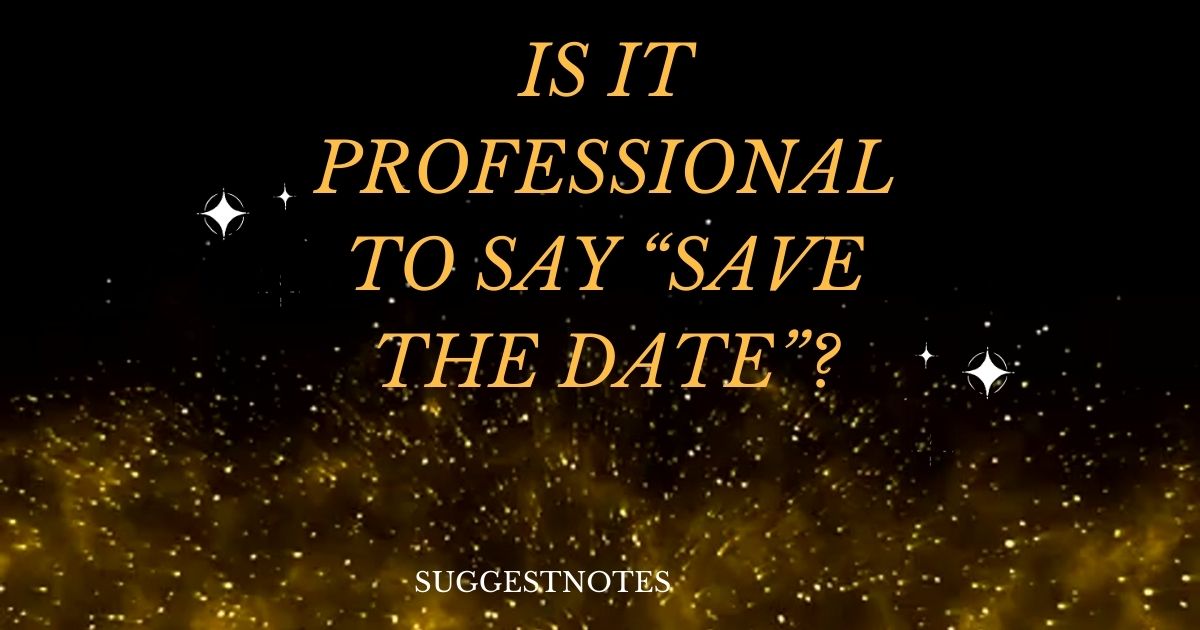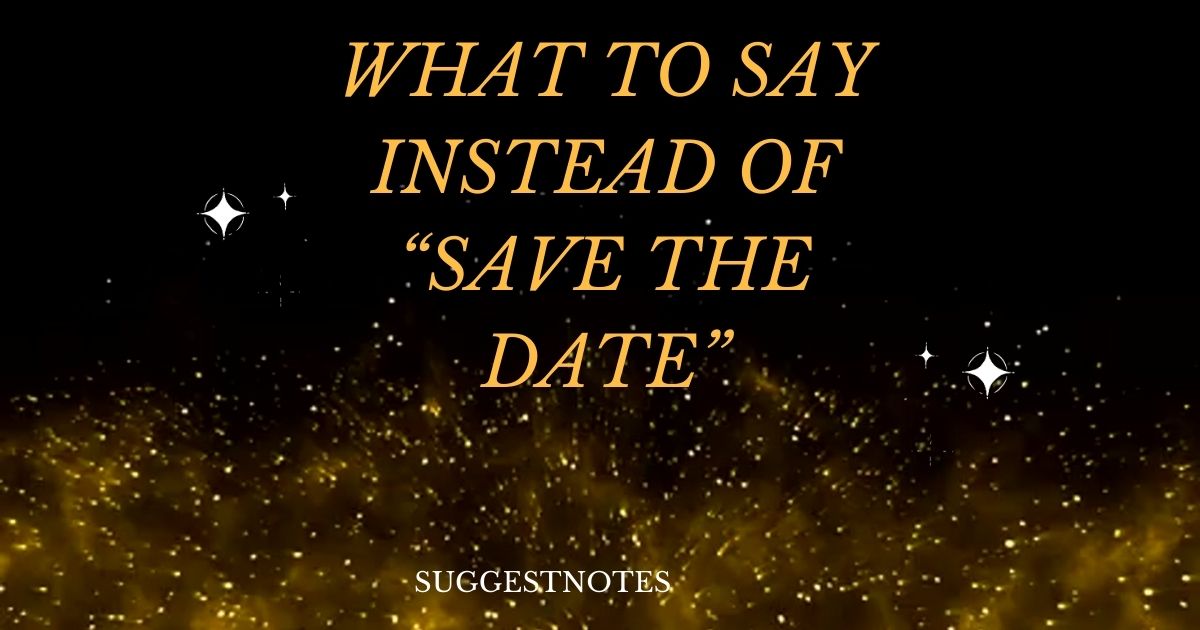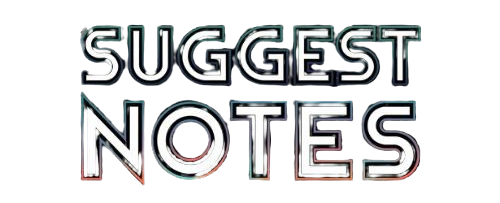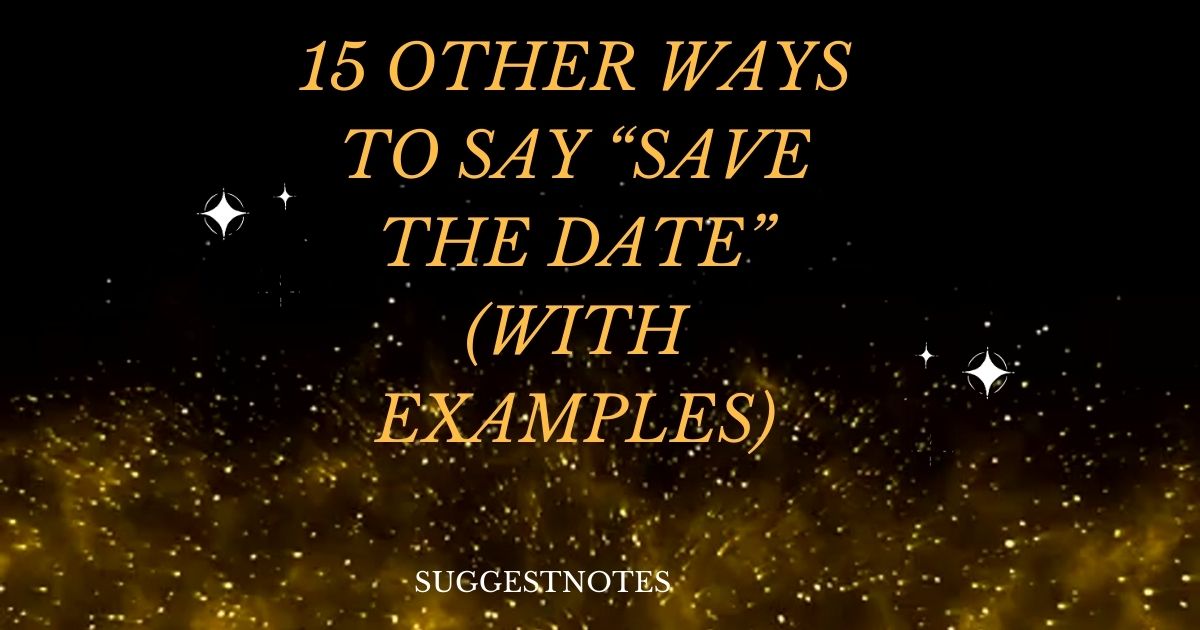Planning an event? Don’t just stick to the usual Save the Date phrasing when you could make your invitations truly stand out. Whether you’re aiming for something formal, friendly, or fun, the way you announce an important date can set the stage for your gathering and build excitement well in advance.
This article dives into 15 fresh alternatives to the standard Save the Date message. Each option offers a unique twist while still conveying the key information your guests need. You’ll discover creative phrases that range from playful and casual to polished and professional, ensuring there’s a perfect match for any occasion.
Why not give your guests something to remember right from the start? By choosing a distinctive Save the Date phrase, you’ll grab their attention and make your event feel extra special before the big day even arrives. Let’s explore these alternatives and find the perfect fit for your celebration.
Is It Professional to Say “Save The Date”?

No, it’s generally not considered very formal. For relaxed events like weddings or birthday celebrations, saying “Save the Date” is perfectly suitable. It provides the key details in a simple and familiar way, making it an easy choice for inviting friends and family.
However, for official business gatherings such as meetings, conferences, or company evaluations, “Save the Date” may sound too informal or lacking in detail. Professional invitations typically need to share additional specifics, such as the purpose of the event, what attendees should prepare for, and the exact time and venue.
Instead of “Save the Date,” more suitable options could include:
- Kindly book [event name] on [date]. More information will be provided soon.
- Mark your calendars for [event name] on [date]. A formal invitation is on the way.
- We’re organizing [event name] on [date]. Please reserve this date for further details.
The aim is to give enough information while ensuring the date is set aside. For work-related invitations, clarity and a formal tone are best.
What to Say Instead of “Save The Date”

If you’re looking for Save the Date alternatives, there are plenty of phrases that can work just as well. These expressions allow you to convey the same message while adding a unique touch to your invitations. Here are some options to consider when planning your event.
- Mark Your Calendars
- Reserve the Date
- Don’t Make Other Plans
- Put It on Your Schedule
- Circle the Date
- Lock It In
- Clear Your Calendar
- Block Off the Day
- Set a Reminder
- Make a Note of It
- The Importance of Save the Date Notifications
- Creative Ways to Design Your Save the Date Cards
- Timing: When to Send Your Save the Date
- Common Mistakes to Avoid with Your Save the Date
- How to Follow Up After Sending a Save the Date?
1. Mark Your Calendars (Friendly and Informal)
When you tell your guests to mark their calendars, you create a friendly atmosphere. This phrase feels inviting and encourages people to save the date without feeling pressured. For example, you might say, “We are throwing a party! Mark your calendars for Saturday, March 10th.” This approach is perfect for informal events like birthdays or casual get-togethers.
Using “mark your calendars” is a great way to keep things light. It suggests that the event will be fun and enjoyable. This phrase is suitable for inviting friends and family to celebrate significant moments without the heaviness that might come with more formal wording.
2. Reserve the Date (Formal and Commitment-Oriented)
If you’re planning a more formal event, consider using the phrase “Reserve the Date.” This expression conveys a sense of importance and commitment, making it suitable for weddings or business functions. For instance, you might say, “Please reserve the date for our wedding on June 15th.” This phrase suggests that the date is significant and that you want your guests to prioritize it.
Using “reserve the date” gives your invitation a professional tone while still feeling warm. It sets the stage for an event that your guests will remember. This wording helps communicate the seriousness of the occasion, encouraging attendees to make arrangements in advance.
3. Don’t Make Other Plans (Direct and Emphatic)
Sometimes, being direct is the best way to get your message across. When you say, “Don’t make other plans,” you emphasize the importance of the date. This phrase is assertive and ensures that your guests know you want them at your event. For example, you might say, “Don’t make other plans for our engagement party on April 22nd.”
Using this expression can be effective, especially when the event is something you don’t want guests to miss. It communicates urgency and importance, making it clear that you value their presence at your event.
4. Put It on Your Schedule (Organized and Professional)
In today’s busy world, being organized is essential. When you ask guests to put it on their schedule, you present yourself as someone who values their time. This phrase is perfect for professional events, as it sounds both polite and efficient. You could say, “Please put it on your schedule for our annual conference on September 10th.”
This expression appeals to a professional audience, making it clear that you take your event seriously. It encourages guests to prioritize the date while maintaining a sense of professionalism.
5. Circle the Date (Casual and Inviting)
“Circle the date” is a playful and inviting way to remind your guests about your event. This phrase feels casual and friendly, making it great for informal gatherings. You might say, “Circle the date for our summer BBQ on July 20th!” It invites guests to participate in a fun atmosphere.
Using this expression gives off a relaxed vibe, suggesting that the event will be enjoyable. It encourages guests to remember the date while maintaining an easygoing tone.
6. Lock It In (Confident and Assured)
When you say, “Lock it in,” you convey confidence and assurance about your event. This phrase is suitable for both informal and formal contexts. You might use it in a wedding invitation, saying, “Lock it in for our big day on October 5th.” This expression shows you’re excited and committed to making the event happen.
Using “lock it in” helps create a sense of anticipation. It suggests that this date is not just another invitation but a special occasion that guests will want to attend.
7. Clear Your Calendar (Urgent and Important)
To convey urgency, you might choose to say, “Clear your calendar.” This phrase emphasizes the importance of your event and encourages guests to prioritize it. For example, you could say, “Clear your calendar for our family reunion on August 14th.” This expression suggests that missing the event is not an option.
Using this phrase communicates that the event is significant and not to be overlooked. It encourages your guests to take immediate action and make the necessary arrangements.
8. Block Off the Day (Comprehensive and Thorough)
When you tell guests to block off the day, you are asking them to reserve time specifically for your event. This phrase feels comprehensive and thorough, suitable for events where you want everyone to be present. For example, you might say, “Block off the day for our wedding on December 1st.”
This expression communicates seriousness and helps guests understand that their attendance is crucial. It emphasizes that they should clear their schedules to make room for your special occasion.
9. Set a Reminder (Practical and Tech-Savvy)
In a world filled with smartphones and digital calendars, saying, “Set a reminder” is practical and tech-savvy. This phrase encourages guests to use technology to remember your event. For example, you might say, “Set a reminder for our charity event on March 15th.”
Using this phrase appeals to a modern audience who values organization and efficiency. It shows that you understand the importance of technology in daily life, making your invitation relatable.
10. Make a Note of It (Attentive and Considerate)
When you tell guests to make a note of it, you demonstrate attentiveness and consideration for their time. This phrase suggests that you genuinely want them to remember your event. You could say, “Please make a note of it for our book club meeting on April 5th.”
Using this expression adds a personal touch to your invitation. It shows that you care about your guests and want them to join in on the fun.
11. The Importance of Save the Date Notifications
Sending out a Save the Date notification is crucial for any event. This early announcement gives your guests ample time to prepare, making them feel valued and appreciated. A well-timed Save the Date helps ensure that loved ones can join you for significant occasions, whether it’s a wedding, birthday, or corporate event.
By communicating the date well in advance, you help guests manage their schedules effectively. A Save the Date also sets the tone for your event, creating excitement and anticipation.
12. Creative Ways to Design Your Save the Date Cards
Designing a Save the Date card is an opportunity to express your personality and style. Whether you opt for a digital invitation or a beautifully printed card, creativity can make your announcement memorable. Consider using images, colors, or themes that reflect your event’s essence.
Adding personal touches, like custom artwork or a meaningful quote, can elevate your Save the Date cards. This creativity not only informs your guests about the date but also gives them a sneak peek into what to expect, enhancing their excitement for the upcoming event.
13. Timing: When to Send Your Save the Date
Knowing when to send your Save the Date notifications is essential for effective event planning. For weddings, it’s best to send these cards six to eight months before the big day. This timeline allows guests to make necessary arrangements, especially if they need to travel.
For other events, such as parties or corporate gatherings, sending your Save the Date three to four months in advance is usually sufficient. Proper timing ensures that your guests have plenty of notice and can prioritize your important date in their calendars.
Related Guide :
15 Other Ways to Say “Thank You For Your Quick Response”
14. Common Mistakes to Avoid with Your Save the Date
When planning your Save the Date, it’s important to avoid common pitfalls that could confuse your guests. One frequent mistake is failing to provide all necessary details, such as the venue or the event’s nature. Make sure your guests have all the information they need to understand why the date is significant.
Another common error is sending out Save the Date notifications too late. Late announcements can lead to scheduling conflicts, reducing your chances of having all your loved ones present. Proper planning is key to ensuring your event is well-attended and celebrated.
15. How to Follow Up After Sending a Save the Date?
Following up after sending a Save the Date is just as important as the initial announcement. Once you’ve sent your Save the Date, it’s a good idea to touch base with your guests as the event approaches. This could be done by sending a formal invitation or a friendly reminder via email or text. It ensures that the date is still on their radar and allows you to provide any updates about the event.
You might also take this opportunity to share additional details, such as the dress code, accommodation options, or the event itinerary. Keeping guests informed not only reinforces the significance of the date but also shows that you’re committed to making the experience enjoyable for everyone involved.
FAQ’s
What is a “Save the Date” notice?
A Save the Date is a pre-invitation notice sent to inform guests of an upcoming event and to reserve that date on their calendars.
When should you send a “Save the Date”?
It’s best to send Save the Date notices 6-12 months before the event, especially for weddings or destination events.
Do you need to send a formal invitation after a “Save the Date”?
Yes, a formal invitation should follow the Save the Date to provide more detailed event information and RSVP instructions.
Is it necessary to send a “Save the Date” for smaller events?
For smaller, informal events, sending a Save the Date is optional, but it can be helpful to ensure key guests are available.
Can you send a digital “Save the Date”?
Absolutely! Digital Save the Date notices are common and can be sent via email or social media for convenience and quick delivery.
Conclusion
In conclusion, using various phrases for Save the Date notifications can enhance your event planning experience. Whether you choose to say, “Mark Your Calendars,” or “Reserve the Date,” the message remains the same: you want your guests to prioritize an important date.
By exploring creative alternatives and understanding the significance of Save the Date notifications, you can ensure your event is memorable and well-attended. So, take the time to craft the perfect Save the Date message, and watch as your loved ones eagerly anticipate your special day.

As a content writer with five years of experience, I focus on creating insightful and impactful website content that drives engagement and boosts search visibility. With a strong foundation in SEO and digital marketing, I excel at crafting compelling narratives that resonate with audiences and enhance brand storytelling. My passion for data-driven content creation allows me to deliver pieces that not only inform but also inspire action. Whether through blog posts, web copy, or informative articles, I strive to empower businesses to connect authentically with their customers.







